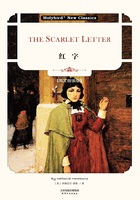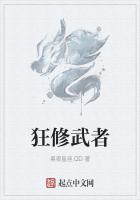17有些事不必太认真
The Importance of Doing Things Badly
佚名 / Anonymous
A. Williams was born in England and educated at Cambridge. After World War I he served as a correspondent for the London Times. Williams wrote several books on eighteenth-century poetry and drama, published widely in journals and magazines, and published collections of his own poetry. The following article first appeared in London's The Outlook in 1923.
Perhaps the greatest threat to productivity in both work and play is the fear of doing things badly or wrong. This article offers some comfort. Williams points out that there are many things worth doing badly, and that our lives are enriched and our personalities enhanced by these activities. Two central examples, sports and music, are valuable to most people in proportion to how enthusiastically they do them, rather than how well.
Charles Lamb wrote a series of essays upon popular fallacies. I do not, at the moment, carry them very clearly in my memory; but, unless that treacherous servant misleads me more even than she usually does, he did not write of one piece of proverbial so-called wisdom that has always seemed to me to be peculiarly pernicious. And this saw, this scrap of specious advice, this untruth masquerading as logic, is one that I remember to have had hurled at my head at frequent intervals from my earliest youth right up to my present advanced age. How many times have I not been told that "If a thing is worth doing at all, it is worth doing well"?
Never was there a more untruthful word spoken in earnest. For the world is full of things that are worth doing, but certainly not worth doing well. Was it not so great a sage as Herbert Spencer who said to the young man who had just beaten him at billiards, "Moderate skill, sir, is the sign of a good eye and a steady hand, but skill such as yours argues a youth misspent?" Is any game worth playing supremely well, at the price of constant practice and application?
Against the professional player I say nothing; he is a public entertainer, like any other, and by his skill in his particular sport he at least fulfills the first social duty of man—that of supporting himself and his family by his own legitimate exertions. But what is to be said of the crack amateur? To me he seems one of the most contemptible of mankind. He earns no money, but devotes himself, for the mere selfish pleasure of the thing, to some game, which he plays day in day out; he breaks down the salutary distinction between the amateur and the professional; eventually his skill deserts him, and he leaves behind him nothing that is of service to his fellow men — not a brick laid, not an acre ploughed, not a line written, not even a family supported and educated by his labor.
It is true that he has provided entertainment for a certain number of persons, but he has never had the pluck to submit himself to the test by which we demand that every entertainer should justify his choice of a calling — the demonstration of the fact that the public is willing to pay him for his entertainment. And, when his day is over, what is left, not even to the world, but to himself? Nothing but a name that is at once forgotten, or is remembered by stout gentlemen in clubs.
The playing of games, certainly, is a thing which is not worth doing well.
But that does not prove that it is not worth doing at all, as the proverb would, by implication, persuade us. There is nothing more agreeable and salutary than playing a game which one likes, and the circumstance of doing it badly interferes with the pleasure of no real devotee of any pastime. The man who minds whether or not he wins is no true sportsman—which observation is trite, but the rule it implies is seldom observed, and comparatively few people really play games for the sheer enjoyment of the playing. Is this not proved by the prevalence and popularity of handicaps? Why should we expect to be given points unless it be that we wish to win by means other than our own skill?
"Ah! but," my reader may say, "the weaker player wants to receive points in order that he may give the stronger one a better game." Really, I do not believe that that is so. Possible, sometimes, a strong and vainglorious player may wish to give points, in order that his victory may be the more notable. But I do not think that even this is the true explanation. That, I suspect, was given to me the other day by the secretary of a lawn-tennis tournament, in which I played. "Why all this nonsense of handicaps? Why not let us be squarely beaten, and done with it?" I asked him. "Because," He replied, "if we did not give handicaps, none of the less good players would enter." Is that not a confession that the majority of us have both realized the true value doing a trivial thing badly, for its own sake, and must needs have our minds buoyed and cheated into a false sense of excellence?
Moreover it is not only such intrinsically trivial things as games that are worth doing badly. This is a truth which, oddly enough, we accept freely of some things—but not of others—and as a thing which we are quite content to do will let me instance acting. Acting, at its best, can be a great art, a thing worth doing supremely well, though its worth, like that of all interpretative arts, is lessened by its evanescence. For it works in the impermanent medium of human flesh and blood, and the thing that the actor create—for what we call an interpretative artist is really a creative artist working in a perishable medium—is an impression upon, an emotion or a thought aroused in, the minds of an audience, and is incapable of record.
Acting, then, let me postulate—though I have only sketched ever so briefly the proof of my belief—can be a great art. But is anyone ever deterred from taking part in amateur theatricals by the consideration that he cannot act well? Not a bit of it! And quite rightly not, for acting is one of the things about which I am writing this essay—the things that are worth doing badly.















